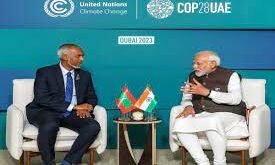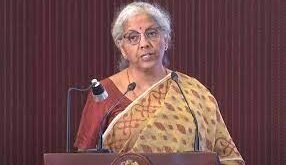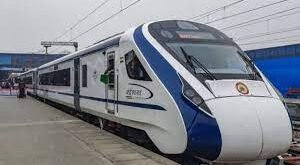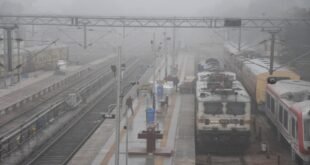
In a significant development, leaders of 17 Indian opposition parties have agreed to set aside their differences and form a united front to contest the upcoming national elections. Their primary objective is to prevent Prime Minister Narendra Modi’s Bharatiya Janata Party (BJP) from securing a third consecutive term in office. This united front aims to counter the potential vote-splitting that could favor the ruling party.
During a meeting held on Friday, the opposition leaders pledged to work together and strategize the selection of joint candidates to challenge the BJP’s nominees across constituencies throughout the country. They plan to convene again next month to formulate a common manifesto that will outline their economic and other priorities. Nitish Kumar, the chief minister of Bihar state and an opposition leader, emphasized the need for a unified approach while protecting shared ideologies.
Rahul Gandhi, a prominent leader of the opposition Congress party, accused Prime Minister Modi of undermining democratic institutions and restricting freedom of speech. Despite acknowledging minor differences among the opposition parties, Gandhi expressed their commitment to maintaining unity and flexibility to confront the ruling party effectively.
One of the concerns voiced by several opposition leaders is the alleged silence of Prime Minister Modi regarding attacks on religious minorities by Hindu nationalists. They believe that Modi’s silence is aimed at garnering support from Hindu voters. In India, Hindus constitute the majority at 80%, followed by Muslims at 14% and Christians at 2.3%.
The BJP has established its dominance in Hindu-dominated regions in northern and central India since assuming power in 2014. However, recent electoral defeats in Himachal Pradesh and Karnataka states have buoyed the hopes of opposition parties, especially regional groups, who view a united front as a viable strategy to challenge Modi’s re-election bid.
Notably, opposition parties successfully formed a coalition to defeat Prime Minister Indira Gandhi and her Congress party in the 1977 elections following the imposition of emergency rule in 1975. Analysts point out that while obstacles remain in the path of a cohesive united front, the pressure on opposition parties to present a unified challenge to Modi is substantial. Many of these parties have faced harassment from federal investigative agencies over the past four years, with the BJP accused of engaging in political maneuvers to weaken and harass opposition leaders.
Political analyst and columnist Arti Jerath highlighted the significance of the opposition parties’ alliance, stating, “If they don’t put up a united challenge to Modi and somehow stop him from coming back, they all know it is going to be the end of the road for them because the BJP will not really allow any of these opposition parties, particularly the Congress, to survive.”
Meanwhile, the BJP has dismissed the opposition talks as a “futile exercise,” indicating their confidence in their electoral prospects.
As the united opposition front takes shape, India’s political landscape is set for a fierce contest in the upcoming national elections. The alliance aims to consolidate support, offer a credible alternative, and test the electoral strength of Prime Minister Narendra Modi and his BJP as they seek to extend their tenure in power.
Sources By Agencies
 Digital Scoop India Official Platform of Digital Scoop India Featuring Latest & Best News #Articles #Bytes #Entertainment #DigitalScoopMagazine
Digital Scoop India Official Platform of Digital Scoop India Featuring Latest & Best News #Articles #Bytes #Entertainment #DigitalScoopMagazine



